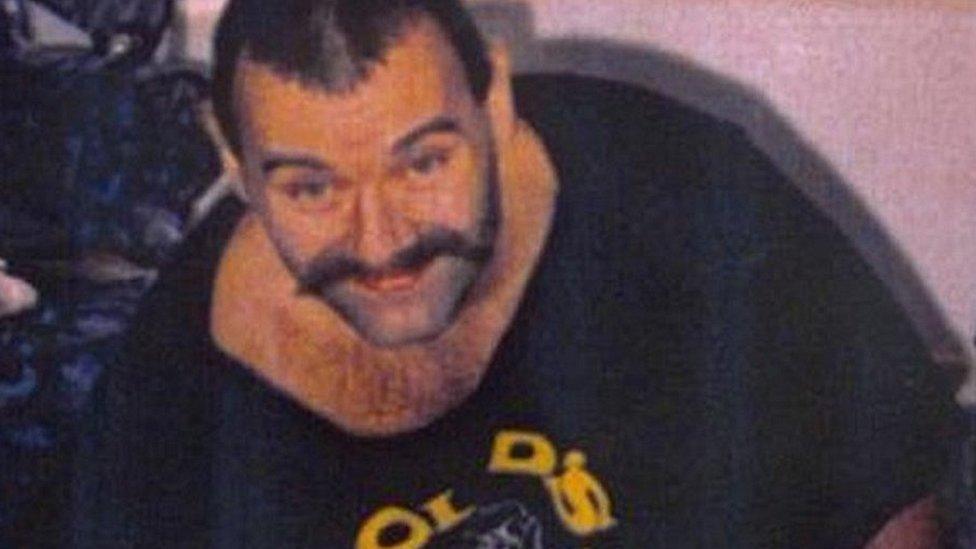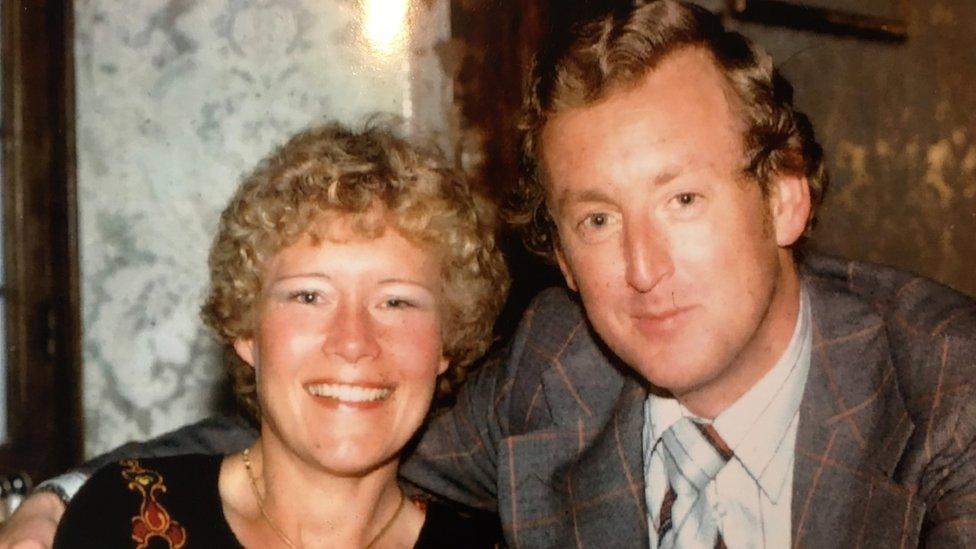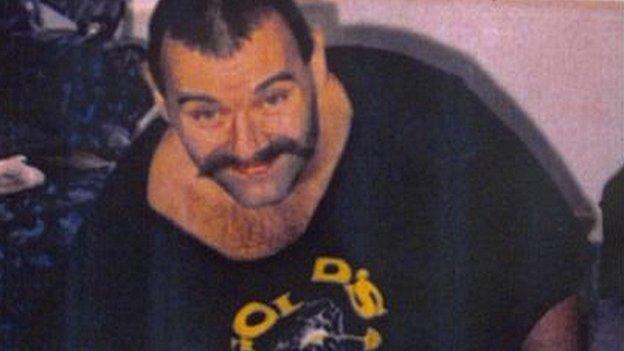Charles Bronson requests first public parole hearing
- Published

Charles Bronson is serving a life sentence at HMP Woodhill for robbery and kidnap
Notorious prisoner Charles Bronson has become the first person to formally ask for a public Parole Board hearing after rules were changed.
Reforms which came into force on Thursday mean hearings could take place in public for the first time.
Bronson, 70, is currently serving a life term at HMP Woodhill in Buckinghamshire.
The Parole Board confirmed a request had been received and would be considered.
It is understood the application was made on his behalf.
Luton-born Bronson, one of the UK's longest serving prisoners, was widely expected to request his latest parole hearing was heard in public, having previously said he wanted his to be the first to take place.
In 2020 he won a court case arguing for a public parole hearing, and since then the rules have been changed to allow some to be held in public.
It is not known how long it would take for the Parole Board to decide whether it could be held in public, but it could take at least 12 weeks for any such hearing to happen.
Bronson, who has since changed his name to Salvador, was originally convicted of armed robbery. But in 1999 he took a prison education worker hostage and was sentenced to life.
Under the reforms, the prisoners in question, government ministers and officials are among some who can request the case is not discussed behind closed doors.
In deciding whether to grant a public hearing, the board's chairman would take into account a number of issues.
These include the wishes of the victim or victims, any risks of trauma to the victims or their families, any particular vulnerability of the prisoner, risks to the safety of the prisoner, and whether witnesses' evidence would be affected.
A Parole Board spokeswoman said: "The new Parole Board rules make it possible for parole hearings to be held in public for the first time in some cases where it is in the interest of justice to do so.
"It is important to state that the normal position will be for parole hearings to remain in private to ensure that witnesses are able to give their best evidence and that victims are not put in a position that could lead to re-traumatisation."

Find BBC News: East of England on Facebook, external, Instagram, external and Twitter, external. If you have a story suggestion email eastofenglandnews@bbc.co.uk, external
Related topics
- Published20 October 2020

- Published18 May 2015
